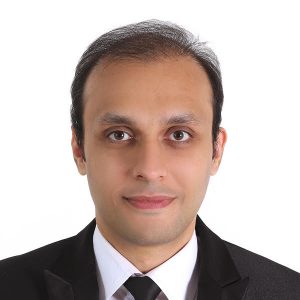Aresh is an Assistant Professor in the Department of Mathematics & Computing at Mount Royal University (MRU). He works on topics at the intersection of data-driven decision-making and stochastic modeling and control of large-scale communication networks. Some of his current research interests include:
- Modeling and performance analysis of emerging communication networks.
- Projection and control of spreading processes over complex networks.
- Learning-based optimal resource allocation in cyber-physical systems.
Prior to MRU, Aresh was a Postdoctoral Fellow at the Department of Computing Science, University of Alberta. From 2017 to 2022, he was an Assistant Professor at the Department of ECE, Nazarbayev University (NU), where he led the Complex Networks and Systems Laboratory (CNSL@NU). He earned the Ph.D. in Information and Communications from Gwangju Institute of Science and Technology (GIST) in South Korea, under the supervision of Kiseon Kim and Khosrow Sohraby, and M.Sc. and B.Sc. both in Computer Engineering from the University of Tehran in Iran.
Currently, he is serving as an Associate Editor for IEEE Canadian Journal of Electrical and Computer Engineering (CJECE).
** Looking for motivated students with a passion for research. E-mail me if interested.
Recent Publications: (Full List)
-
Age Analysis of Correlated Information in Multi-Source Updating Systems with MAP Arrivals
IEEE Communications Letters, May 2024. [Impact factor: 4.1] -
Cost-Effective Activity Control of Asymptomatic Carriers in Layered Temporal Social Networks
IEEE Transactions on Computational Social Systems, April 2024. [Impact factor: 5] -
Reinforcement Learning-Based Dynamic Load Balancing in Edge Computing Networks
Computer Communications, April 2024. [Impact factor: 6]
